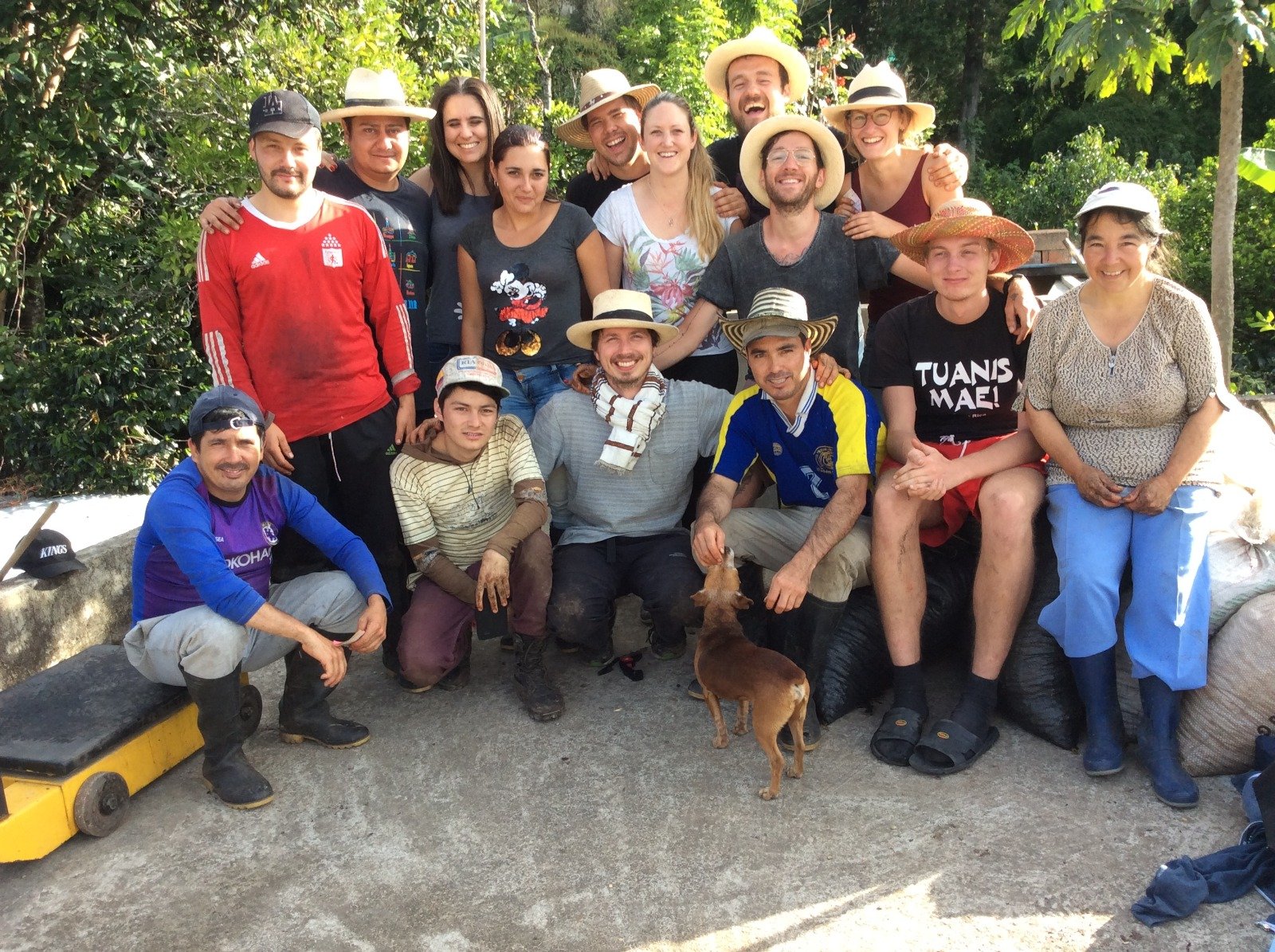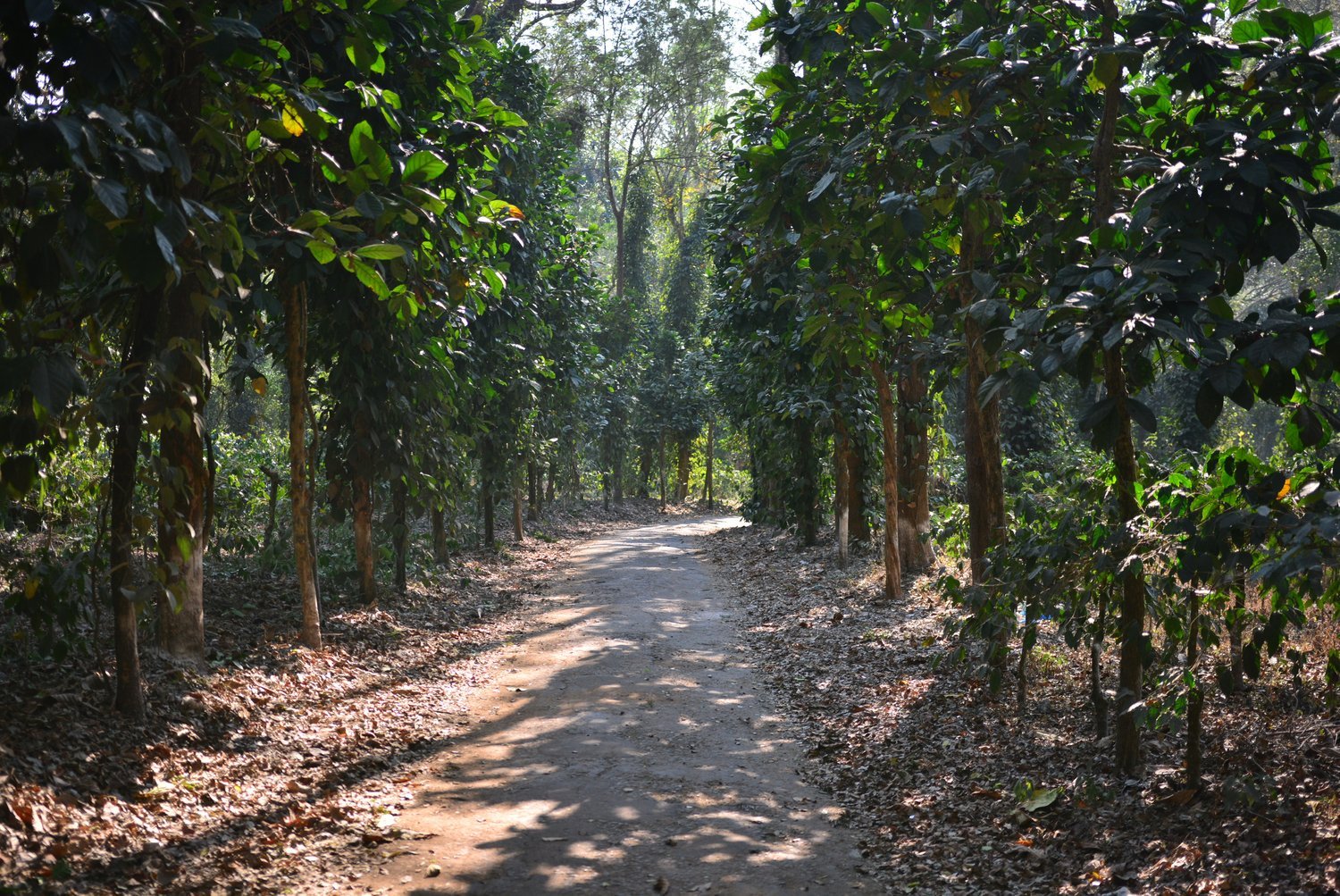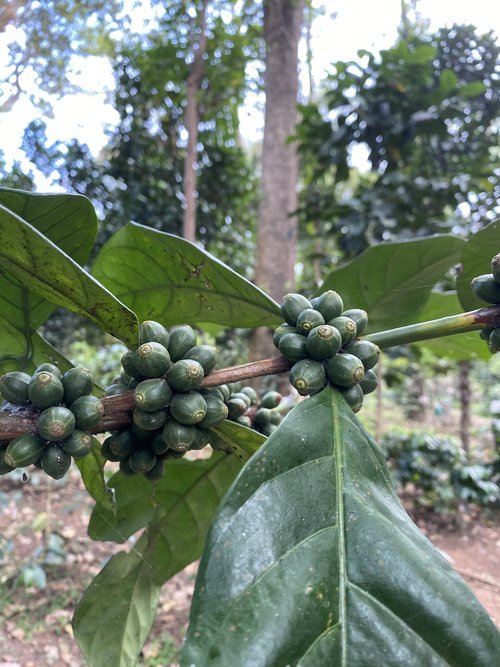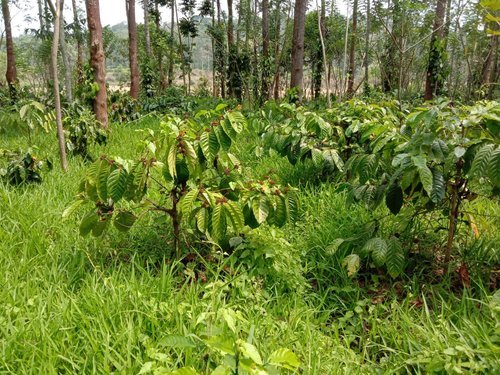the Opportunity
Finding a transparent and cost-effective alternative to both the carbon market and bio-certification for farmers within the TSU network, allowing them to showcase sustainable ecological practices to the market in a measurable and verifiable manner. This project also aims to analyze the various ecological risks impacting Arabica and Robusta coffee production in India and develop localized climate datasets to aid agricultural decision-making in the fight against climate change. The results are expected to detail how satellite data, machine learning, and climate models can establish a climate baseline for coffee farmers, which, coupled with additional indicators, can contribute to organic certification and inform action plans for more sustainable, climate-resilient, and organic farming practices. This project will be piloted at 7 estates in South Karnataka in close cooperation with our partners at South India Coffee Company.
WHERE: Coorg, South Karnataka, India
WHAT: Use climate models, machine learning and satellite data to develop a baselines that deepen our understanding regarding beneficial ecological practices for farmers in TSU network and create alternatives to carbon and certification market
WHO: MVO Nederland, South India Coffee Company, 52impact and This Side Up
goals:
total investment(FINANCIAL AND WORKING HOURS)
TO MONITOR AND ASSESS CLIMATE DATA FOR COFFEE PRODUCTION IN INDIA IN A COST-EFFECTIVE MANNER FOR COFFEE FARMERS.: Setting up systems that can measure and monitor climate data, create reliable climate models allows producers to start understanding the actual impact of climate change on the ecosystem much more closely. The major ecological impact of climate change on Arabica and Robusta will be monitored considering the various factors such as climate, cropland and landscape in South Karnataka. The insights from climate models as well machine learning will help them make decisions to develop a climate proof future.
TO UTILIZE THIS DATA AS AN ALTERNATIVE TO ORGANIC CERTIFICATION : It is possible to create alternative standards to organic certification, where farmers can use this data to add more value to their product and brand. When it is beneficial and viable for the farmers, it can help us onboard the entire value chain to stand behind this approach.
TO SUPPORT PRODUCERS IN SAID CONTEXT BY PROVIDING MITIGATION PLANS AND TRANSITIONING TO CLIMATE-RESILIENT COFFEE PRODUCTION BASED ON RESULTS : Since the methodology involved global datasets and local inputs from partners, it be will possible to find specific advise per estate so they can deepen their own understanding regarding their ecological practices locally. SICC and TSU will then be able to work closely with local partners to support them in making necessary changes.
“xx”
This Side Up applied for a MVO voucher for half the consultancy costs for this project which was 5000 euros. The rest was contributed to the project by This Side Up. The other stakeholders in this project were 52impact who helped with the analysis of the data and SICC, the origin partner in whose estate this project was utilized. The total working hours put in by 52impact for this project was 100 hours (8 by Koen for project management, 46 by climate/data engineer David and 46 by earth scientist and data engineer Deborah. Akshay from South Indian Coffee Company spent XX mining for the coordinates.
PROJECT
timeline
January 2023
Start of voucher project
April 2023
All data accounted for by SICC to do the required scans
May 2023
First analyses done by 52Impact with data from SICC
July 2023
Final presentation voucher project and discussion of results, defining steps for the future (make bridge to deforestation project)
Background
Coffee farming is not growing to become sustainable, neither economically nor environmentally. Unfortunately, we see more and more large polluters using regenerative agriculture to make "net zero" claims: i.e., investing in carbon credits from regenerative agriculture so they "nullify" emissions from their own production. If we take a magnifying glass to these initiatives, we see that they are just an excuse to avoid affecting their growth, cause pollution and avoid valuation on them.
One result is that more and more farmers are becoming interested in the "voluntary carbon market" to get income from improving their land . At, This Side Up, we invest in regenerative agriculture, worldwide. In addition to reducing the need for fertilizers and pesticides, farmers can make money growing other crops that go well with coffee, even supporting each other in improving the soil, providing shade, biodiversity and water storage.
In a perfect world, farmers could all sell their coffee and other products directly as close to the end customer who might be willing to pay high prices for the produce. In this case, additional revenues from the carbon market would be unnecessary. But before this becomes a reality we don't think we should turn our backs on farmers who show interest in the carbon market, as it is an extra income that can positively improve their livelihoods.
Our Indian partner Akshay Dashrath, a former IT professional who now runs a coffee plantation with his wife Komal Sable, had looked into the carbon market and came to us with the question: how can we get additional income from regenerating our plantation, through the carbon market or some other way? In addition, couldn't we use this data to show customers that even though we are not certified (which is very expensive), we produce even better than organic (regenerative)?
In collaboration with 52impact and South India Coffee Company, we want to use the voucher created by MVO Nederlands to develop an Indian pilot for a system in which all our partner farmers in 15 countries can participate: using satellite data, machine learning techniques and local measurements, we paint an ecological portrait of the plantation that is both easy to generate and verify. We then want to offer this data within our chain in a way that makes greenwashing impossible
We are not only interested in providing information for climate baseline assessment and organic certification. We also want to make an impact in the field with the farmer. To this end, we will translate information obtained from satellites, among other things, into actions that can be implemented by the farmer to achieve sustainable coffee production.
A thick lush of greens and flowering coffee plants protected by big trees in Western Ghats
Interventions to aid climate proofing
The results from the study prompted South India Coffee Company to already come up with several interventions that can aid in making the system climate proof:
Creating more canopy to combat extreme weather, trenching to capture rainfall runoff for later use
Discovering native Excelsa that has deeper roots to graft it against Robusta and arabica to make them drought resistant
Use the results of the report as a starting point to start working closely with farmers to change their farming ways. They offer free saplings and aid in educating them to switch to more nature inclusive farming



















